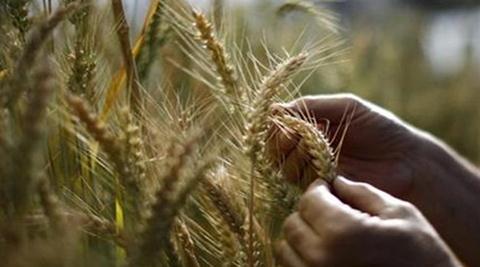Demonetisation has slowed down the sowing of rabi crops —wheat, pulses and oilseeds — in Uttar Pradesh to an extent, but things have picked up lately and the target could be met. According to state agriculture department data, around 90% of the target of 129 lakh hectare has been sown till now.
“Sowing of rabi crops usually continues till the end of December and some farmers sow in January, too, especially the wheat crop. We are sure to achieve the target,”, Gyan Singh, state director (agriculture), told FE. He also said in comparison to last year, the sowing has been better this year.
Till now, wheat — a key rabi crop — has been sown in more than 86 lakh hectare in UP, which is marginally lower than the average of normal sowing areas. The normal sowing area for the entire rabi season for wheat in the state is 97.5 lakh hectare.
In case of pulses, sowing in UP so far has already exceeded the normal or average of the last five years’ sowing which is likely to result in bumper output in the state. More than 17 lakh hectare has been covered under pulses against normal area of 15 lakh hectare.
Stating that an increase in sowing of pulses has pushed up total sowing in the ongoing rabi season so far, Singh said: “Last year’s drought did bring down the average rabi sowing. The reason behind the good pulses sowing is that this year the rainfall was good as compared to last year,” he said.
Watch what else is making news:
However, VM Singh, a farmer leader from the state, said sowing has been impacted because of demonetisation. “There is something called an ideal time for sowing all crops. While the weather for sowing pulses was conducive in October for wheat, farmers have to wait for early winters to set in in November to start sowing. Only when the crop gets the entire winter of around 140 days, it gives a good yield,” Singh said.
He added that owing to the cash crunch, all activities related to farming came to an abrupt halt. “Overnight there was no money to buy seeds and fertilisers and people had to start queuing up in front of banks for basic needs,” Singh said.
However, agriculture ministry officials said the UP government has allowed farmers to use old banknotes to buy seeds. But the Centre has restrained the district cooperative banks (DCBs) from exchanging the old notes due to which neither the cooperative banks, nor cooperative societies were allowed to accept the old notes.
Despite apprehensions about demonetisation adversely impacting rabi sowing, the overall sowing till last week across the country surpassed 519 lakh hectare, which is marginally higher than the average sowing area for the last five years. In comparison to the corresponding period last year, this year’s rabi sowing has increased by close to 6% so far. The sowing would continue till the end of this month.


